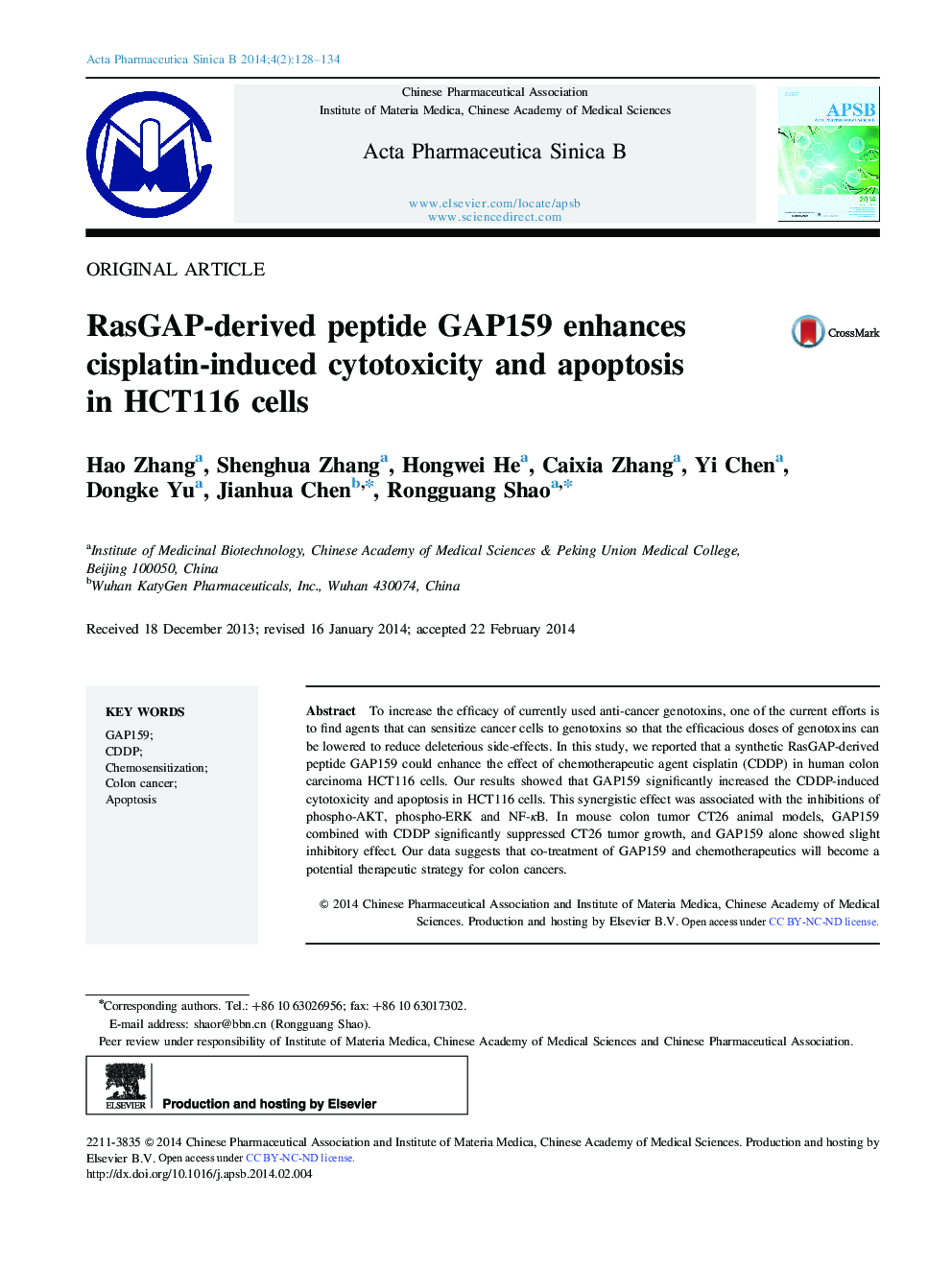| Article ID | Journal | Published Year | Pages | File Type |
|---|---|---|---|---|
| 2474563 | Acta Pharmaceutica Sinica B | 2014 | 7 Pages |
To increase the efficacy of currently used anti-cancer genotoxins, one of the current efforts is to find agents that can sensitize cancer cells to genotoxins so that the efficacious doses of genotoxins can be lowered to reduce deleterious side-effects. In this study, we reported that a synthetic RasGAP-derived peptide GAP159 could enhance the effect of chemotherapeutic agent cisplatin (CDDP) in human colon carcinoma HCT116 cells. Our results showed that GAP159 significantly increased the CDDP-induced cytotoxicity and apoptosis in HCT116 cells. This synergistic effect was associated with the inhibitions of phospho-AKT, phospho-ERK and NF-κB. In mouse colon tumor CT26 animal models, GAP159 combined with CDDP significantly suppressed CT26 tumor growth, and GAP159 alone showed slight inhibitory effect. Our data suggests that co-treatment of GAP159 and chemotherapeutics will become a potential therapeutic strategy for colon cancers.
Graphical abstractGAP159, a synthetic RasGAP-derived peptide, targets and down-regulates G3BP, enhances cisplatin induced cytotoxicity and apoptosis in HCT116 cells in vitro and mouse colon tumor CT26 animal models in vivo.Figure optionsDownload full-size imageDownload as PowerPoint slide
